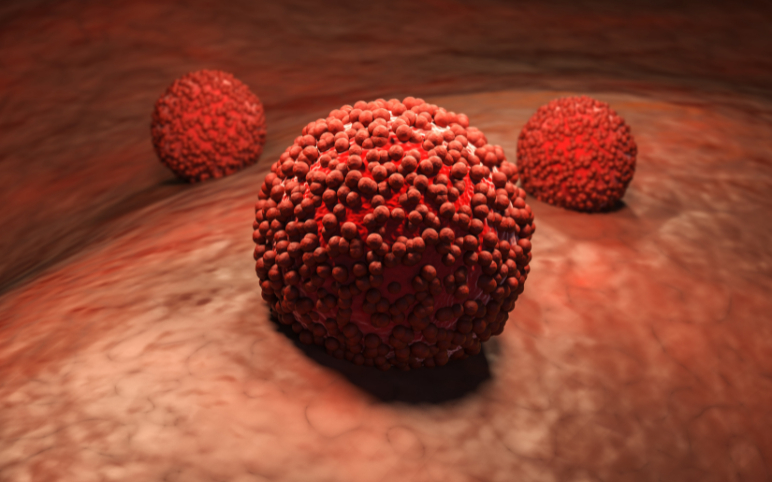Clover biopharmaceuticals raises $230 M; BrainStorm after ALS; BARDA grants $5.65 M LightDeck for SARS-CoV-2 antigen test; Libtayo for first-line advanced NSCLC subset
Feb 23, 2021
Table of Contents
Clover Biopharmaceuticals Raises $230 Million
Clover Biopharmaceuticals announced the completion of an oversubscribed $230 million Series C financing, summing total capital raised by the company during the last year over USD 400 million. The Series C round was co-led by GL Ventures and Temasek, with participation from Oceanpine Capital, OrbiMed, and existing investor Delos Capital.
Clover Biopharmaceuticals is a clinical-stage biotechnology company based in China. The company develops transformative biologics including vaccines and therapeutics for the world’s most debilitating diseases.
Downloads
Click Here To Get the Article in PDF
Recent Articles
- Most Promising Oncological Drugs Expected to Launch in 2022
- EU approval for Libtayo and Dovato; Boehringer expands NASH pipeline
- C4X Discovery and AstraZeneca Signs Deal; FDA Rejects Spectrum’s Poziotinib; Orphan Drug Designat...
- European Lung Cancer Congress (ELCC) 2025 Recap: Advances in Lung Cancer Research and Treatment
- Pfizer & Lilly’s JAK Inhibitors Drug; FDA Approves Lilly’s Bebtelovimab; GSKR...
The company plans to use the capital to expand its pipeline of protein-based vaccines and biologic cancer therapies utilizing its innovative and proprietary Trimer-Tag technology platform. Moreover, Clover plans to initiate a global phase II/III efficacy trial for SCB-2019 (S-Trimer), its COVID-19 vaccine candidate, in the first half of 2021. It has already initiated production planning for potentially hundreds of millions of vaccine doses in 2021.
Besides, Clover is set to advance multiple new pipeline products in 2021 and expand its in-house R&D and cGMP commercial biomanufacturing capabilities.
BrainStorm Receives Feedback on BLA Submission for ALS
BrainStorm Cell Therapeutics has received feedback from the USFDA on its Biologics License Application submitted for NurOwn therapy for amyotrophic lateral sclerosis (ALS). NurOwn platform comprises autologous mesenchymal stem cells (MSCs) and neurotrophic factors (NTFs), which is developed as a targeted therapeutic approach for disease pathways involved in neurodegenerative disorders.
According to the regulatory agency, the data from the Phase III trial submitted by the company failed to meet the threshold of substantial evidence needed to support a Biologics License Application (BLA).
The company, however, is optimistic and gearing up to find more opportunities to advance in the ALS market. Despite the feedback, the platform showed improvements in some ALS patients, and it presents a positive picture. The company now plans to study more about the biomarkers in ALS and hopes to come up with broadly effective therapy.
LightDeck Diagnostics Gets USD 5.65 M from BARDA for SARS-CoV-2 Antigen Test
LightDeck Diagnostics has tied up with the Biomedical Advanced Research and Development Authority (BARDA), part of the Office of the Assistant Secretary for Preparedness and Response at the US Department of Health and Human Services (HHS), to kick start the development of a rapid antigen test to detect SARS-CoV-2.
The LightDeck COVID-19 Antigen Test is a point-of-care antigen test that uses a highly sensitive and simple methodology, which uses waveguide technology to develop accurate diagnostics tests. The COVID-19 test, as per the company, would offer a significant alternative to the current PCR-based diagnostics test that offers better sensitivity and specificity than the ones. Moreover, the test is set to deliver the results in less than 6 minutes.
Under the contract, BARDA has agreed to pay LightDeck a sum of USD 5.65 M. Earlier, the LightDeck had raised USD 11 M in a Series B funding to develop and commercialize its in vitro multiplex tests for several panels, including COVID-19. The proceedings gathered will facilitate the smooth execution of the strategies the company has formed.
Libtayo for First-line Advanced Non-small Cell Lung Cancer Subset
The FDA has approved first-line Libtayo (cemiplimab-rwlc) monotherapy for patients with advanced non-small cell lung cancer with a PD-L1 expression of 50% or greater. The approval is for the subset of patients who either have metastatic or locally advanced tumors who are not eligible for surgical resection or chemoradiation and who do not have EGFR, ALK, or ROS1 aberrations.
Libtayo has already proved its worth with previous approval in a certain section of the patient pool with advanced cutaneous squamous cell carcinoma. Not long ago, Libtayo received approval for advanced basal cell carcinoma in certain cases.
This approval comes as the third one that followed a Priority Review by the FDA. The priority review represents the potential of the therapy is significantly improving the patient outcome without compromising with safety and efficacy. The approval is granted to Sanofi and Regeneron Pharmaceuticals.
Downloads
Article in PDF
Recent Articles
- T-cell Immunoglobulin and ITIM domain (TIGIT) Inhibitor: An Insight into the Pipeline Development...
- Notizia
- KEY CLINICAL OUTCOMES
- Thrombolytic Sciences’ trial; NurOwn for ALS; Biosimilar receives approval; Trelegy Ellipta for t...
- How Will Emerging Therapies Drift the Amyotrophic Lateral Sclerosis (ALS) Treatment Landscape?




